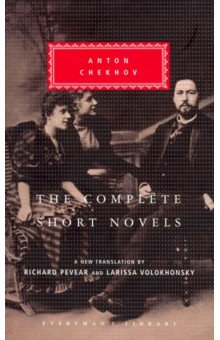Chekhov, widely hailed as the supreme master of the short story, also wrote five works long enough to be called short novels. The Steppe-the most lyrical of the five-is an account of a nine-year-old boy's frightening journey by wagon train across the steppe of southern Russia to enroll in a distant school. The Duel sets two decadent figures-a fanatical rationalist and a man of literary sensibility-on a collision course that ends in a series of surprising reversals. In The Story of an Unknown Man, a political radical plans to spy on an important official by serving as valet to his son, however, as he gradually becomes involved as a silent witness in the intimate life of his young employer, he finds that his own terminal illness has changed his long-held priorities in startling ways. Three Years recounts a complex series of ironies in the personal life of a rich but passive Moscow merchant, engaging time as a narrative element in a way unusual in Chekhov's fiction. In My Life, a man... _x000D_
Chekhov, widely hailed as the supreme master of the short story, also wrote five works long enough to be called short novels. The Steppe-the most lyrical of the five-is an account of a nine-year-old boy's frightening journey by wagon train across the steppe of southern Russia to enroll in a distant school. The Duel sets two decadent figures-a fanatical rationalist and a man of literary sensibility-on a collision course that ends in a series of surprising reversals. In The Story of an Unknown Man, a political radical plans to spy on an important official by serving as valet to his son, however, as he gradually becomes involved as a silent witness in the intimate life of his young employer, he finds that his own terminal illness has changed his long-held priorities in startling ways. Three Years recounts a complex series of ironies in the personal life of a rich but passive Moscow merchant, engaging time as a narrative element in a way unusual in Chekhov's fiction. In My Life, a man renounces wealth and social position for a life of manual labour, and the resulting conflict between the moral simplicity of his ideals and the complex realities of human nature culminates in an apocalyptic vision that is unique in Chekhov's work.
| ISBN | 978-1-85715-277-7 |
| Автор | Chekhov Anton |
| Год | 2004 |
| Переплет | 7А |
| Издательство | Everyman |
| Стр. | 558 |
| ID | 01Л1-10 |
| ID2 | 695539 |
У этого товара нет ни одного отзыва. Вы можете стать первым.



